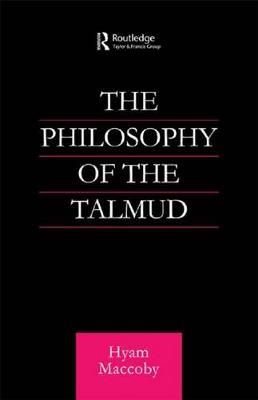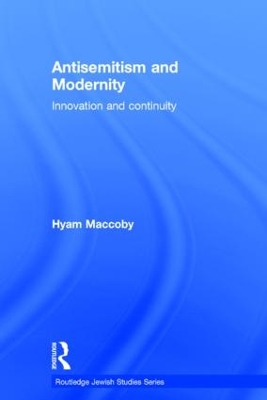Routledge Jewish Studies
2 total works
This is a new presentation of the philosophy of the Talmud. The Talmud is not a work of formal philosophy, but much of what it says is relevant to philosophical enquiry, including issues explored in contemporary debates. In particular, the Talmud has original ideas about the relation between universal ethics and the ethics of a particular community. This leads into a discussion on the relation between morality and ritual, and also about the epistemological role of tradition.
The book explains the paradoxes of Talmudic Judaism as arising from a philosophy of revolution, stemming from Jewish origins as a band of escaped slaves, determined not to reproduce the slave-society of Egypt. From this arises a daring humanism, and an emphasis on justice in this world rather than on other-worldly spirituality. A strong emphasis on education and the cultivation of rationality also stems from this. Governing the discussion is a theory of logic that differs significantly from Greek logic. Talmudic logic is one of analogy, not classification and is peculiarly suited to discussions of moral and legal human situations.
This book will be of interest to those in the fields of philosophy, religion and the history of ideas, whether students, teachers and academics, or the interested general reader.
The subject of anti-Semitism, not long ago thought to be a dead issue, has been revised due to the conflict between Israel and the Palestinians. Maccoby traces the now topical discussion of the origins of Anti-Semitism, and especially its development in the modern world. The key questions that are addressed include:
- How is it that this medieval prejudice proved so lasting and potent?
- Are the roots of anti-Semitism religious? If so, how do these roots differ in Christianity and Islam?
- By what means did it bridge the gap between medievalism and Enlightenment?
- How was it that many of the most respected Enlightenment figures (such as Voltaire) dedicated as they were to tolerance and pluralism, retained a virulent anti-Semitism?
These questions, and many more, are dealt with as Maccoby explores the roots of the anti-Semitism, tracing it from its origins, and shows how it has changed in accordance with the shifting ideas of the modern world but without changing in its essence.
Antisemitism and Modernity is essential reading for those with interests in the development of anti-Semitism, its manifestation in the current world and its future.

